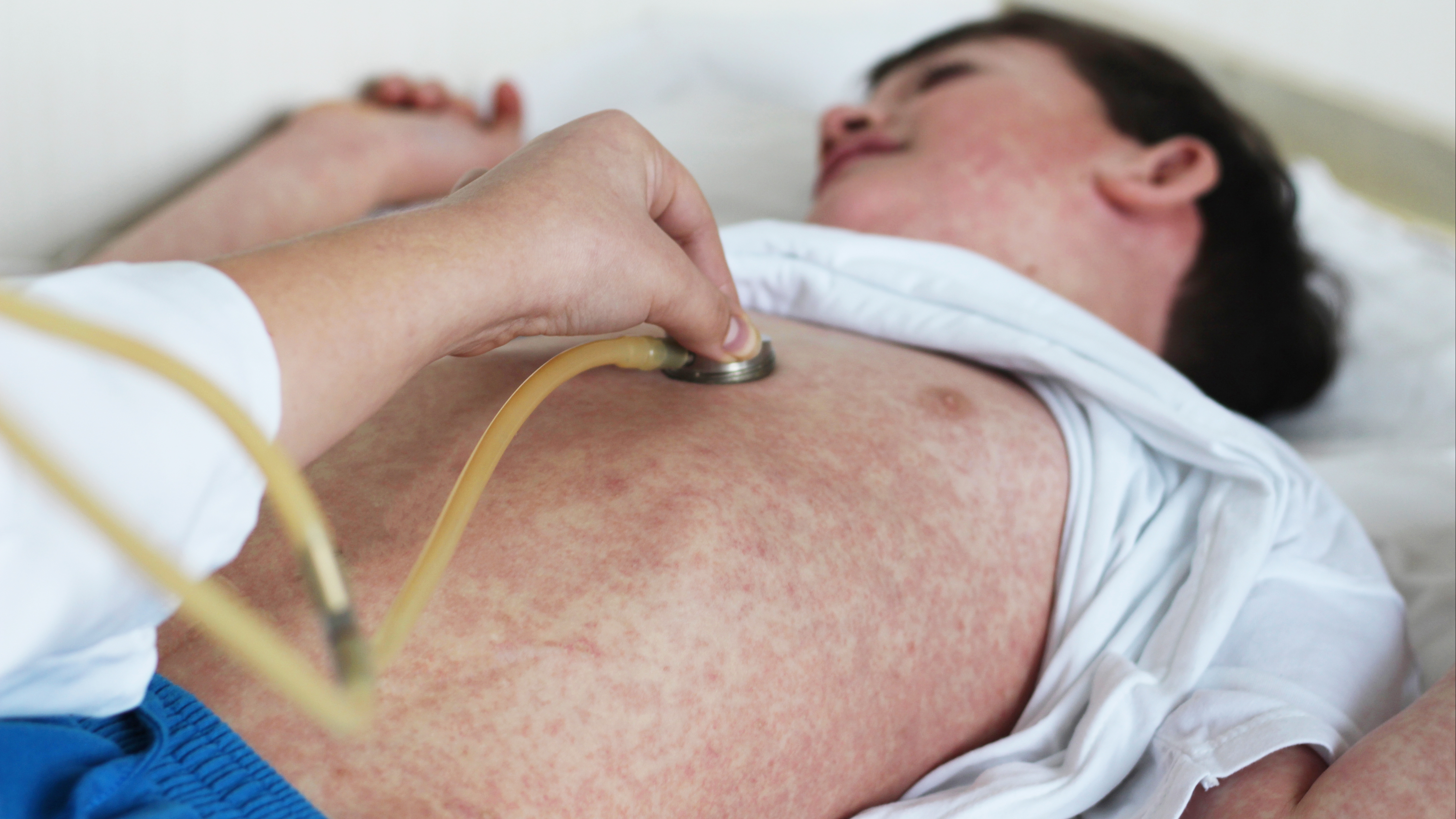-
Featured News
Infectious Diseases A-Z: Battling a myth about measles vaccine
 Measles infection can be serious but, can be prevented with a safe and effective vaccine, says Dr. Nipunie Rajapakse, a pediatric infectious diseases specialist at Mayo Clinic.
Measles infection can be serious but, can be prevented with a safe and effective vaccine, says Dr. Nipunie Rajapakse, a pediatric infectious diseases specialist at Mayo Clinic.
"One to 2 out of every 1,000 kids that develops measles infection will die. We know about the same number will develop potentially irreversible brain damage as a consequence of the infection. It's completely unnecessary because we have an excellent vaccine that prevents this infection."
The measles vaccine is part of the measles, mumps and rubella (MMR) vaccine series given to children.
Watch: Dr. Nipunie Rajapakse discusses myths about measles.
Journalists: Broadcast-quality sound bites with Dr. Nipunie Rajapakse are in the downloads at the end of the post. Please "Courtesy: Mayo Clinic News Network."
Dr. Rajapakse says parents are trying to make the best decisions for their children in terms of how to protect them.
"There's a lot of misinformation out there available through various channels, on the internet, through social media," says Dr. Rajapakse. "That can make making the right decision challenging for parents who may not quite understand the studies that have been done or what studies have shown, or have trouble kind of reconciling all of this different, conflicting information that they see."
One of the biggest myths Dr. Rajapakse hears is misinformation that links the measles vaccine with autism.
"This is something that many parents raise to us as their reason for not wanting to vaccinate their children against measles, mumps and rubella. This comes from a now discredited, retracted study from the late 1990s that came out in The Lancet. It has since been retracted from that publication and all of the co-authors have removed their names from being associated with that paper." Data that was included in that article was found to be falsified and the authors were found to be guilty of fraud and multiple ethical violations.
More than 20 studies since then have found no link between the vaccine and autism, including a recently published large study in Denmark.
"Over 600,000 children were studied through a population-based registry that again has shown that there is absolutely no link between MMR vaccine and autism," says Dr. Rajapakse. "In that study, they also looked at a subgroup of kids who were determined to be at a higher risk of autism — either through risk factors such as having a father or mother with advanced age or a sibling with autism. And even within that group at increased risk they did not find any association with MMR vaccine."
The Centers for Disease Control and Prevention recommends all children get two doses of MMR vaccine, starting with the first dose at 12 - 15 months of age and the second dose at ages 4 - 6. Two doses of MMR vaccine are approximately 97 percent effective at preventing measles.







